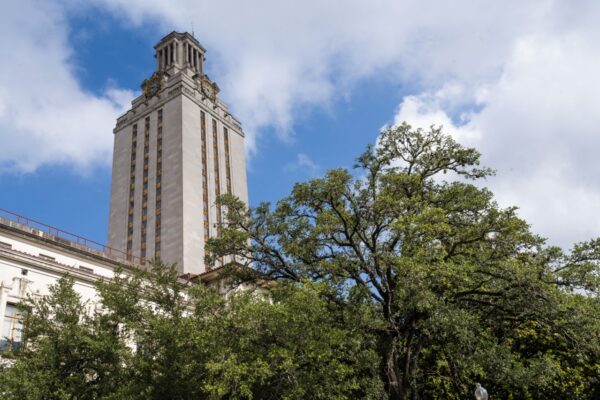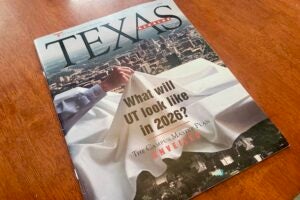AUSTIN, Texas — After four years of test-optional admissions for undergraduate applications, The University of Texas at Austin will return to requiring standardized testing scores, beginning with applications for the Fall 2025 semester. The University suspended the standardized score requirement in Spring 2020 due to limited testing availability during the COVID-19 pandemic.
“Our goals are to attract the best and brightest students and to make sure every student is successful once they are here. Standardized scores combined with high school GPA support this goal by improving early identification of students who demonstrated the greatest academic achievement, the most potential, and those who can most benefit from support through our student success programs,” said President Jay Hartzell. “Our experience during the test-optional period reinforced that standardized testing is a valuable tool for deciding who is admitted and making sure those students are placed in majors that are the best fit. Also, with an abundance of high school GPAs surrounding 4.0, especially among our auto-admits, an SAT or ACT score is a proven differentiator that is in each student’s and the University’s best interest.”
Last year, the University experienced an all-time high number of applicants — approximately 73,000. It is estimated that about 90% or more of these applicants took a standardized exam, according to a range of data provided by the College Board, which administers the SAT. Analysis of the University’s own data further revealed that on average, students who submitted standardized scores performed significantly better on those exams and in their first semester of college, relative to those who did not take the test or chose not to have their scores considered as part of a holistic review. Among the findings:
- 42% of the nearly 73,000 freshman applications for Fall 2024 asked to have their standardized scores considered in a holistic review (to “opt in”), while 49% of students applying under the state’s auto-admit rule (in the top 6% of their high school class) made that request.
- Those who opted in had a median SAT score of 1420, compared with a median of 1160 among those who did not.
- The higher standardized scores translated on average to better collegiate academic performance. Of 9,217 first-year students enrolled in 2023, those who opted in had an estimated average GPA of 0.86 grade points higher during their first fall semester, controlling for a wide range of factors, including high school class rank and GPA. Those same students were estimated to be 55% less likely to have a first semester college GPA of less than 2.0, all else equal.
The University has also demonstrated that knowledge of standardized test scores contributes to higher graduation rates. The ability to predict student success using standardized test scores and other factors spurred a major student success initiative in 2012, strategically directing assistance and resources to students with the greatest academic needs. In part due to these efforts, during the following decade, UT’s four-year graduation rate climbed to a record 74.5% in Fall 2023, up from 52% in 2013. The student success program was recognized in its early stages in New York Times Magazine.
The University will continue to conduct a holistic review and will consider standardized test scores and other performance metrics in light of each applicant’s background, including the strength and rigor of their high school. Standardized test scores will not change the admissions decision for automatic admits, of course, but will be used to match applicants to their choice of majors and to indicate who might benefit most from the University’s student success programs.
In addition to reinstating standardized scores, the University is making further modifications to the application process to strengthen holistic review and craft a stronger, more successful class. These modifications will also improve the application experience for prospective students.
- Introduction of a new Early Action program. This optional deadline will require application submission by Oct. 15, with a guaranteed decision communicated to applicants by Jan. 15. The regular deadline for applications will remain Dec. 1, with a guaranteed decision communicated by Feb. 15.
- Modification of the required essay. This will provide greater flexibility in topic choice and enable students to leverage responses used on other applications, while expanding opportunity for a more personalized response.
- Reduction in the number of short answer responses. This reduction from three responses to two will maintain the currently used major-related question, while creating a new prompt that allows students to highlight a specific activity of their choice.
- Introduction of a waitlist. Applies to students who are not automatically admitted. Most students will be notified as early as March 1 if they are admitted from the waitlist.
- Narrowed scope for letters of recommendation. Applicants submitting letters of recommendation will be strongly encouraged to provide those letters from sources outside of their high school. This reduces the burden of this work on high school teachers and counselors and allows University staff to better leverage other materials.
The University will begin requiring standardized test scores and implement other related changes during the Aug. 1–Dec. 1, 2024, application period.




